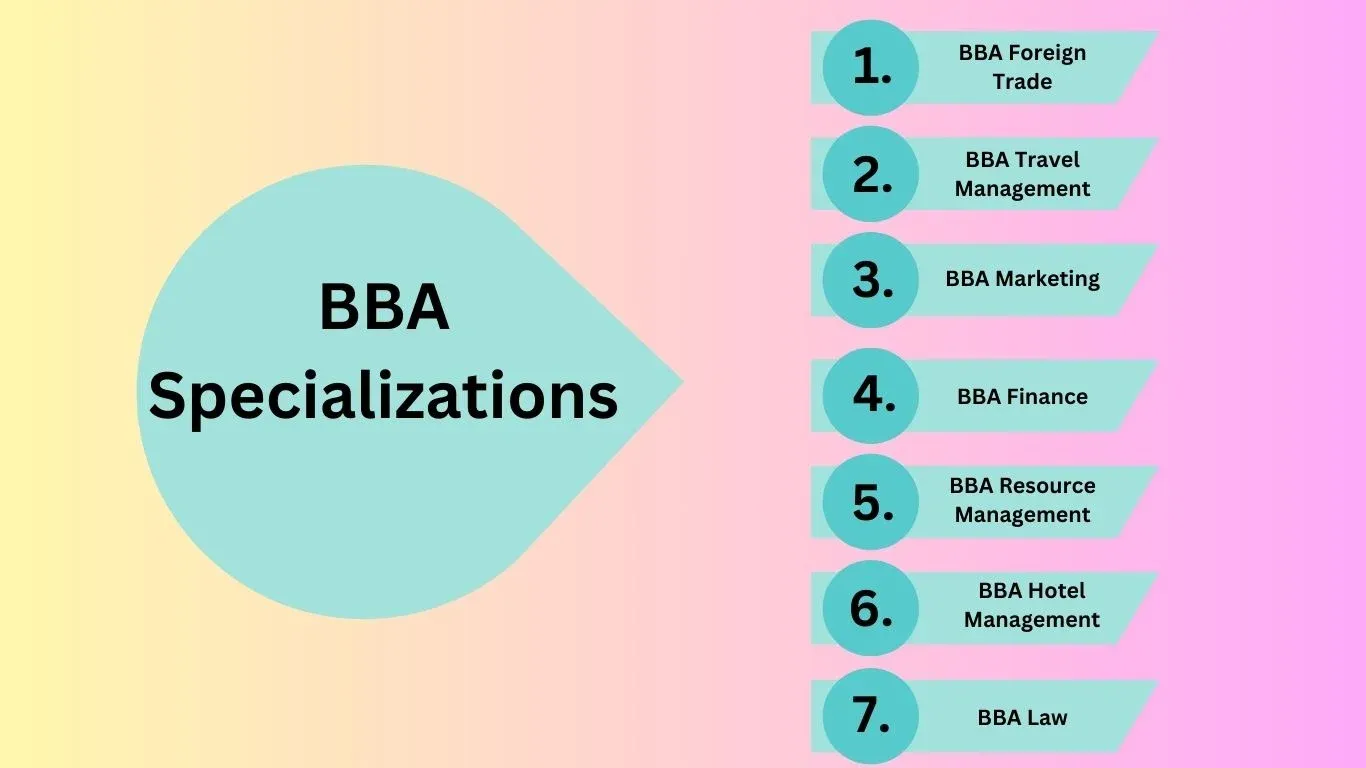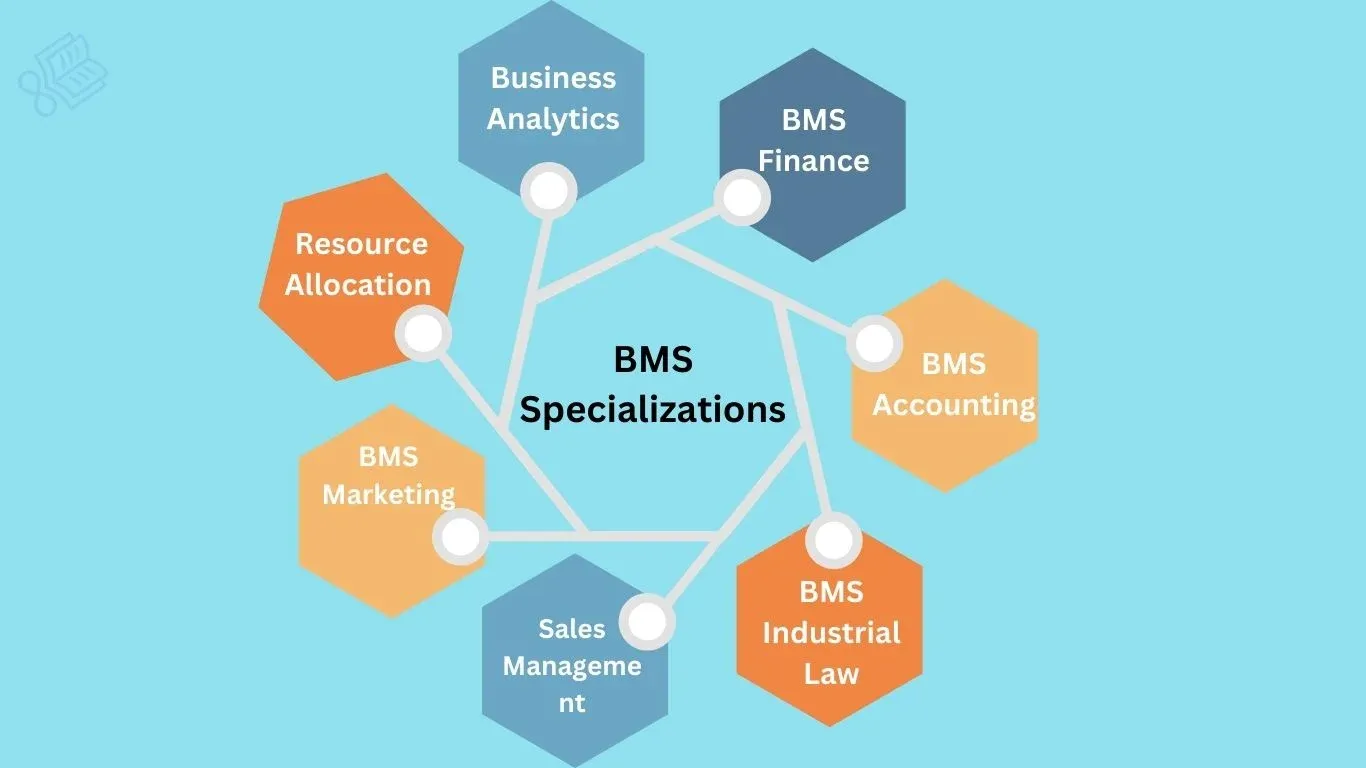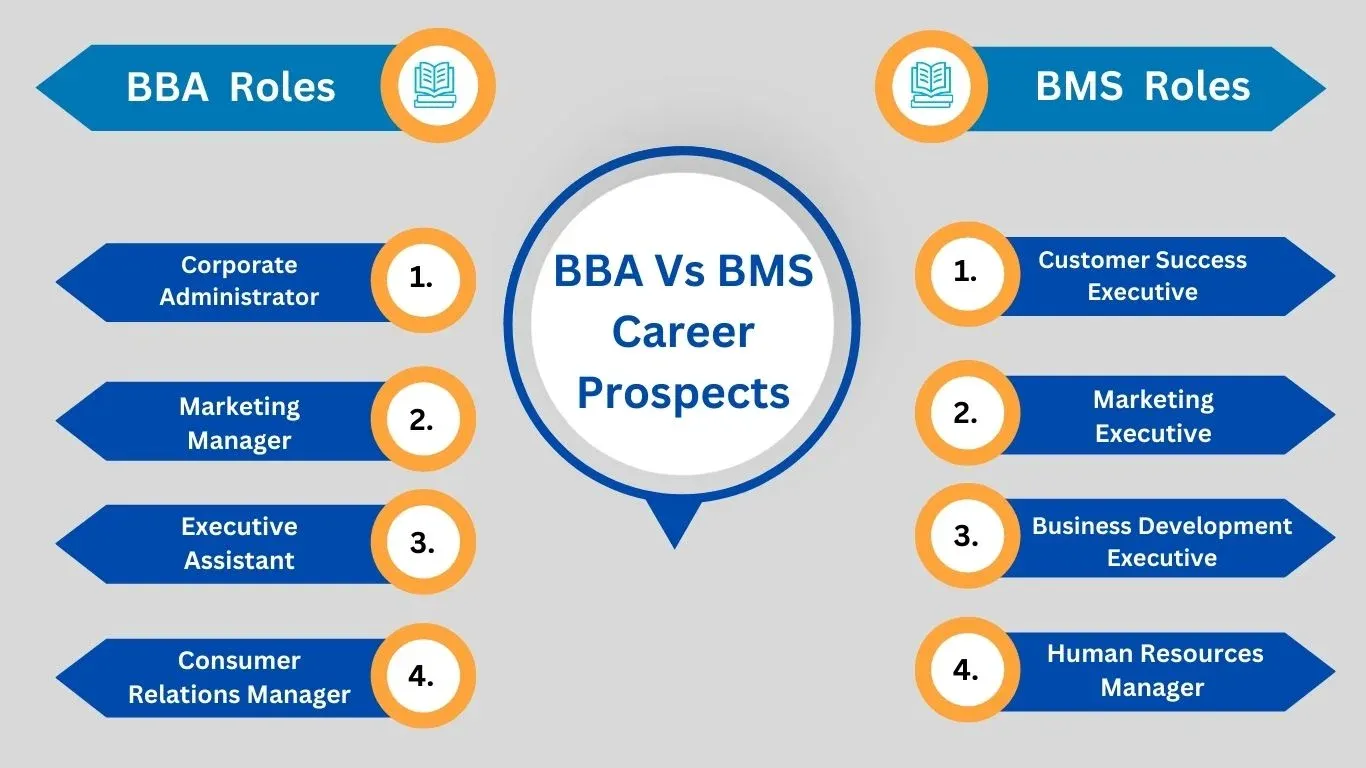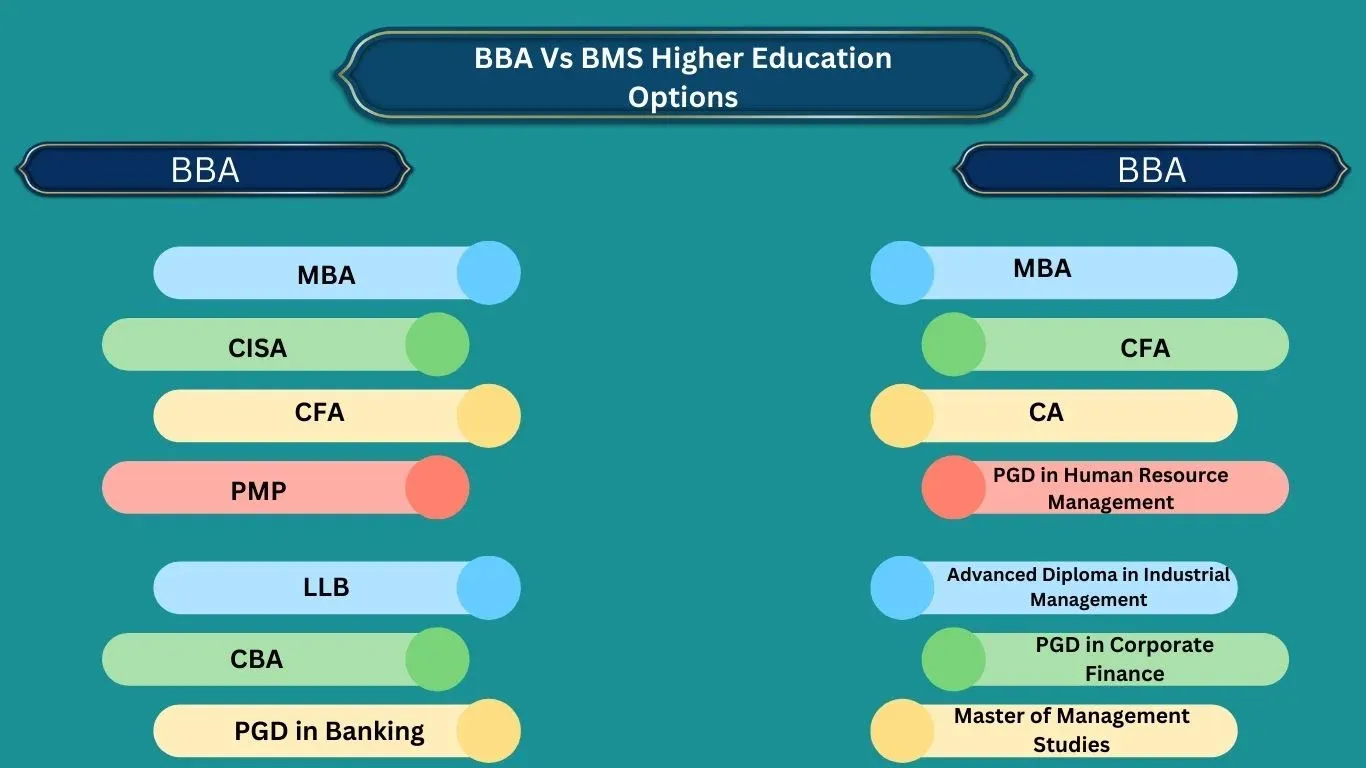Commerce students have various courses to choose from when looking forward to pursuing a bachelor’s degree. BBA and BMS are two of the most popular courses among this pool of options. However, students often get confused about which will be more suitable for their career.
Are you also stuck in the same dilemma? If yes, you must compare both courses thoroughly to make the right choice. Continue reading this blog to understand the BBA vs BMS difference in detail.
Get Complete Details From Expert
BBA Vs BMS Difference

Before comparing the two courses based on varying factors, you must know what they offer. BBA (Bachelor of Business Administration) is a three-year undergraduate management course. It focuses on business operations and administration. This program offers a diverse scope of specializations.
On the other hand, a BMS (Bachelor of Management Studies) is preferred by students interested in managerial studies. It is also a three-year undergraduate course. This degree focuses on the study of finance and economics in business management.
The course structure and difficulty levels of BMS and BBA are similar. However, their specializations and subjects differ.
Let’s compare BMS vs BBA programs in detail to help you differentiate between the two. Below is a detailed differentiation based on varying factors.
BBA vs BMS Eligibility

Both BMS and BBA courses demand basic eligibility criteria, just like all other bachelor's programs. You must secure at least 50% in your 10+2 to enter these programs. However, there are certain other eligibility requirements, as detailed below.
BBA Eligibility Criteria
- Minimum 50% in 10+2 studies from English medium or English as one of the mandatory subjects.
- You might be required to pass some university-level entrance examinations like DUJAT, SEET, IMPT, or others.
BMS Eligibility Criteria
- Minimum 50% in 10+2 studies from English medium or English as one of the mandatory subjects.
- You might get direct admission based on cutoffs or through university-level entrance examinations.
BBA and BMS Syllabus Differences

Although some aspirants may usually believe and think they share the same coursework, the syllabuses of both courses are significantly different. Each focuses on a different aspect of management studies, making it essential to understand BBA and BMS syllabus differences in detail.
BBA Syllabus
BBA focuses more on administration studies than management studies. Some of the most crucial subjects included in this program are as follows.
- Operations Management
- Import/ Export Management
- Public Relations Management
- Management Accounting
- Managerial Economics
- International Marketing
- Business Law
- Business Accounting
- Family Business Management
BMS Syllabus
BMS emphasizes more on logical and analytical-oriented studies. Some of the important subjects included in BMS are as follows.
- Business Statistics
- Industrial Law
- Computer Applications
- Strategic Management
- Cost Accounting
- Business Aspects of Banking & Insurance
- Financial Management
- International Finance
- Business Ethics & Corporate Social Responsibility
BBA Vs BMS Programs/ Specializations

Comparing BBA vs BMS programs is essential, as they cater to distinct areas of study within the broader field of business and management. Each course offers unique perspectives and focuses on specific skill sets tailored to different career paths. Below is a list of some of the most sought-after specializations offered in BBA and BMS programs.
BBA Specializations

- BBA Foreign Trade
- BBA Travel Management
- BBA Marketing
- BBA Finance
- BBA Resource Management
- BBA Hotel Management
- BBA Law
BMS Specializations

- BMS Finance
- BMS Accounting
- BMS Industrial Law
- BMS Marketing
- BMS Sales Management
- BMS Resource Allocation
- BMS Business Analytics
BBA Vs BMS Career Prospects

BBA and BMS graduates have similar career prospects. However, BBA graduates get administration roles. On the other hand, BMS graduates get involved in management roles. Below are some common fields and roles for both.
BBA Career Fields and Roles
- Fields- Operations, Administration, Industrial Operations, Marketing, Sales, Assets Management, Corporate Funds, Banking, IT
- Roles- Corporate Administrator, Marketing Manager, Analyst, Finance Manager, Operations Manager, Executive Assistant, Consumer Relations Manager
BMS Career Fields and Roles
- Fields- Finance Management, Banking, Human Resources, Business Development, Accountancy, Corporate Accountancy, IT, Retail Sales
- Roles- Customer Success Executive, Marketing Executive, Accounts Manager, Finance Manager, Business Development Executive, Human Resources Manager
BBA Vs BMS Salary

BBA and BMS graduates earn around the same salaries if they do not have any other higher education qualifications. Check the salaries below for different job roles.
BBA Graduates Salary
BMS Graduates Salary
BBA Vs BMS Higher Education Options

Higher education options are another crucial differentiating factor when choosing between BBA and BMS.
Higher Education Courses After BBA
- MBA
- CISA
- CFA
- PMP
- LLB
- CBA
- PGD in Banking
Higher Education Courses After BMS
- MBA
- CFA
- CA
- PGD in Human Resource Management
- Advanced Diploma in Industrial Management
- PGD in Corporate Finance
- Master of Management Studies
BBA Vs BMS Difference: Key Highlights

Read more: Why Online BBA Course is Important for Career Opportunities?
Take the next step in your career ?
Conclusion
BBA and BMS are two popular courses for commerce students. These courses are significantly different. So, you must be very careful while choosing one. Comparing BBA vs BMS difference is the way to choosing the right course.
A thorough comparison will help you understand which course aligns best with your career preferences and aspirations. Also, remember to choose the right institution to pursue a graduation course. You can consider Amity University Online to pursue such programs online.
Check Out Our Top Online Degree Programs


